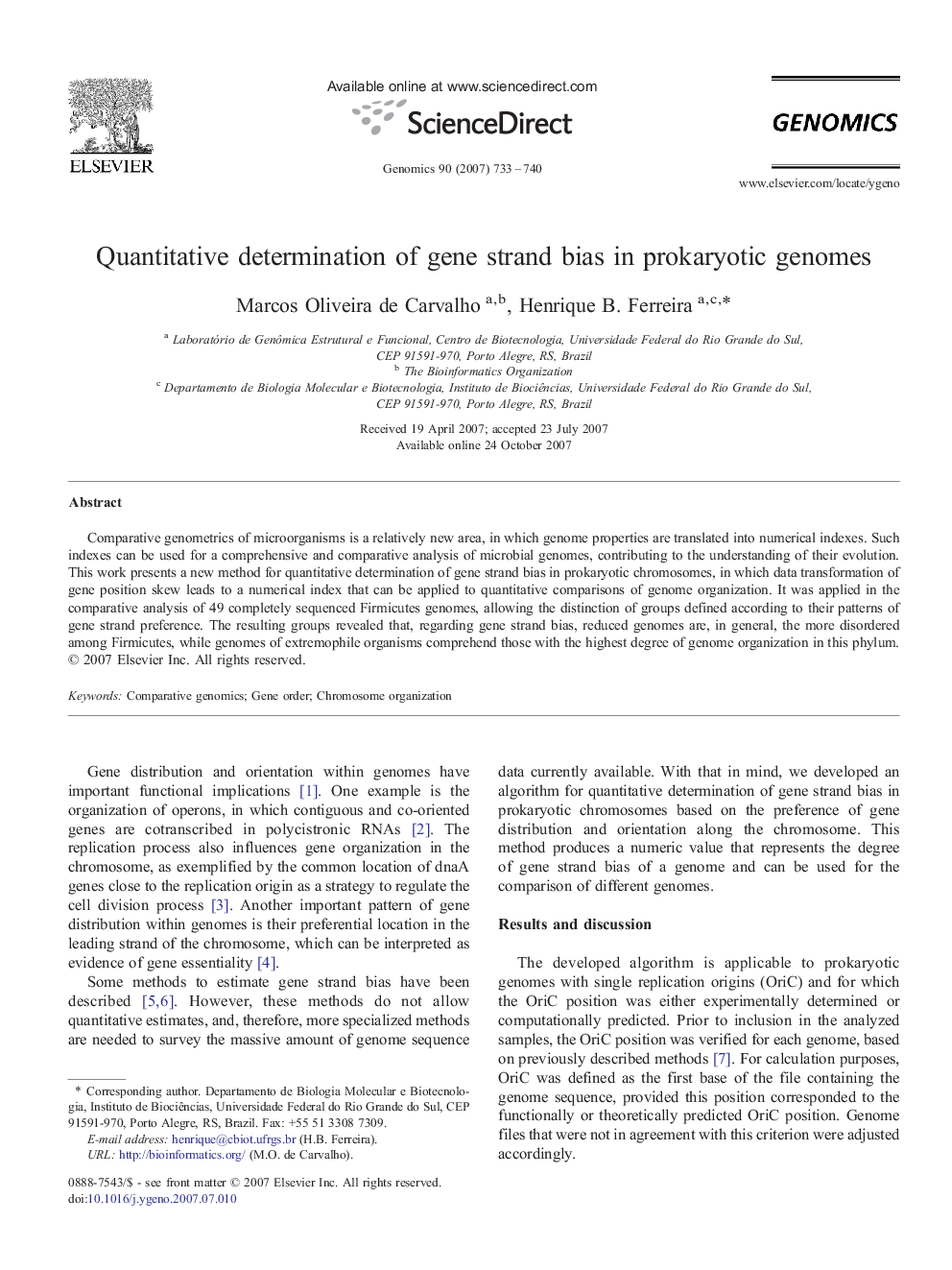| Article ID | Journal | Published Year | Pages | File Type |
|---|---|---|---|---|
| 2821696 | Genomics | 2007 | 8 Pages |
Comparative genometrics of microorganisms is a relatively new area, in which genome properties are translated into numerical indexes. Such indexes can be used for a comprehensive and comparative analysis of microbial genomes, contributing to the understanding of their evolution. This work presents a new method for quantitative determination of gene strand bias in prokaryotic chromosomes, in which data transformation of gene position skew leads to a numerical index that can be applied to quantitative comparisons of genome organization. It was applied in the comparative analysis of 49 completely sequenced Firmicutes genomes, allowing the distinction of groups defined according to their patterns of gene strand preference. The resulting groups revealed that, regarding gene strand bias, reduced genomes are, in general, the more disordered among Firmicutes, while genomes of extremophile organisms comprehend those with the highest degree of genome organization in this phylum.
